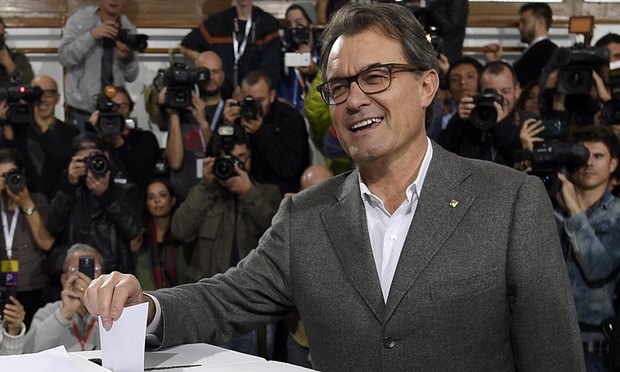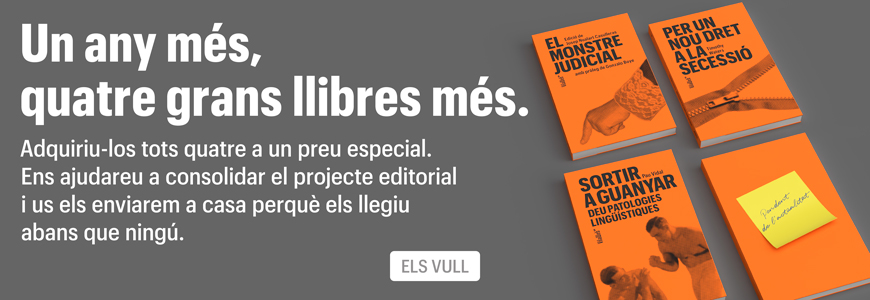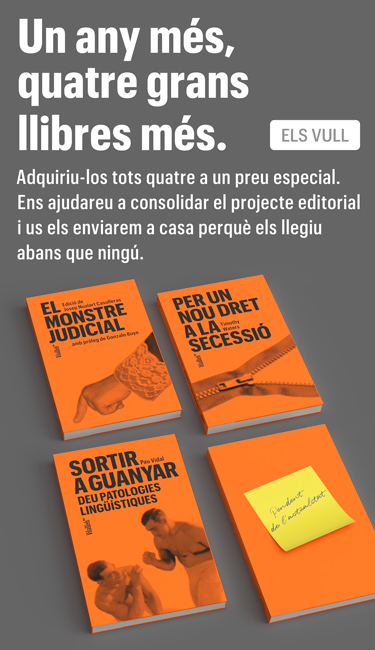06.02.2017 - 11:10
The former Catalan president Artur Mas has insisted he has nothing to apologise for as he prepares to go on trial for his role in the symbolic independence referendum staged in the region three years ago.
Mas, who governed Catalonia from 2010 to 2016, will appear at the high court in Barcelona on Monday along with former vice-president Joana Ortega and former education minister Irene Rigau.
They are accused of criminal disobedience and breach of trust for holding the referendum in defiance of Spain’s constitutional court and could receive a 10-year ban on holding public office if convicted.
More than 80% of participants opted for independence in the non-binding vote, staged in November 2014. However, only 2.3 million of Catalonia’s 5.4 million eligible voters took part.
The trial comes as tensions escalate between Madrid and Barcelona as the Catalan government prepares to hold another vote on separation later this year.
Speaking at a press conference alongside Ortega and Rigau on Sunday, Mas defended the vote as a democratic exercise. “We’re going into the trial calmly and in good spirits,” he said. “We have nothing to apologise for. We stood up nobly for what a lot of the country asked for.”
Mas said they would not be cowed, adding: “We did what we had to do. We would do it again. Tomorrow we will enter [court] with our heads held high, and make sure we represent, with all possible dignity, the 2.3 million people who voted on 9 November and gave the world a lesson in democracy and national pride.”
At the time, Mas hailed the referendum as a lesson in democracy, while Spain’s justice minister, Rafael Catalá, dismissed it as “a day of political propaganda organised by pro-independence forces and devoid of any kind of democratic validity”.
The vote galvanised those calling for sovereignty, pitting Mas and his colleagues against the Spanish government and judiciary, who both argue that separatists’ actions are in violation of the constitution.
Although Mas stepped down in January 2016 to ensure that his pro-independence Junts pel Sí (Together for Yes) coalition could governCatalonia with the support of the far-left Popular Unity Candidacy party, his successor, Carles Puigdemont, has vowed to push ahead with independence.
Five months ago, Puigdemont announced that the Catalan government would again defy Madrid by holding a binding referendum in September this year.
The move has been blocked by Spain’s constitutional court, which warned Puigdemont and Carme Forcadell, the speaker of the Catalan parliament, that they had a duty to “stop or paralyse” any move to ignore or dodge the suspension, or face “potential liabilities, including at a penal level”. Forcadell faces charges of contempt of court and neglect of duty for allowing the parliament to vote on plans to secede from Spain last July.
Despite the huge crowds that have taken to the streets in recent years to use Catalonia’s national day as a pro-independence rally, a majority currently eludes the sovereignty movement. A poll at the end of December showed 46.8% of people in the region are against independence compared with 45.3% who are in favour.
However, Mas and his fellow campaigners believe the trial could serve to win more people to their cause. “For us personally this is not a gift. This can halt our political careers for several years,” he told the Financial Times last week. “But for the project – the creation of a sovereign state – this is positive because it mobilises people. It mobilises even people who are not in favour of independence.”
The political temperature rose further on Thursday after police made a string of arrests as part of an investigation into allegations that Mas’s former party, CDC, sought kickbacks for public contracts when it was in power. Mas described the arrests as “a scandalous set-up” designed to damage him in the run-up to his trial.
Madrid has also refused to rule out resorting to drastic measures to prevent the referendum being held, including closing schools to stop them being used as polling stations and even taking control of the Catalan police. Catalá said invoking the relevant article of the constitution to halt the vote remained “an option”.
The Catalan government said the move would represent a threat to “the essence of democracy”.
More The Guardian



